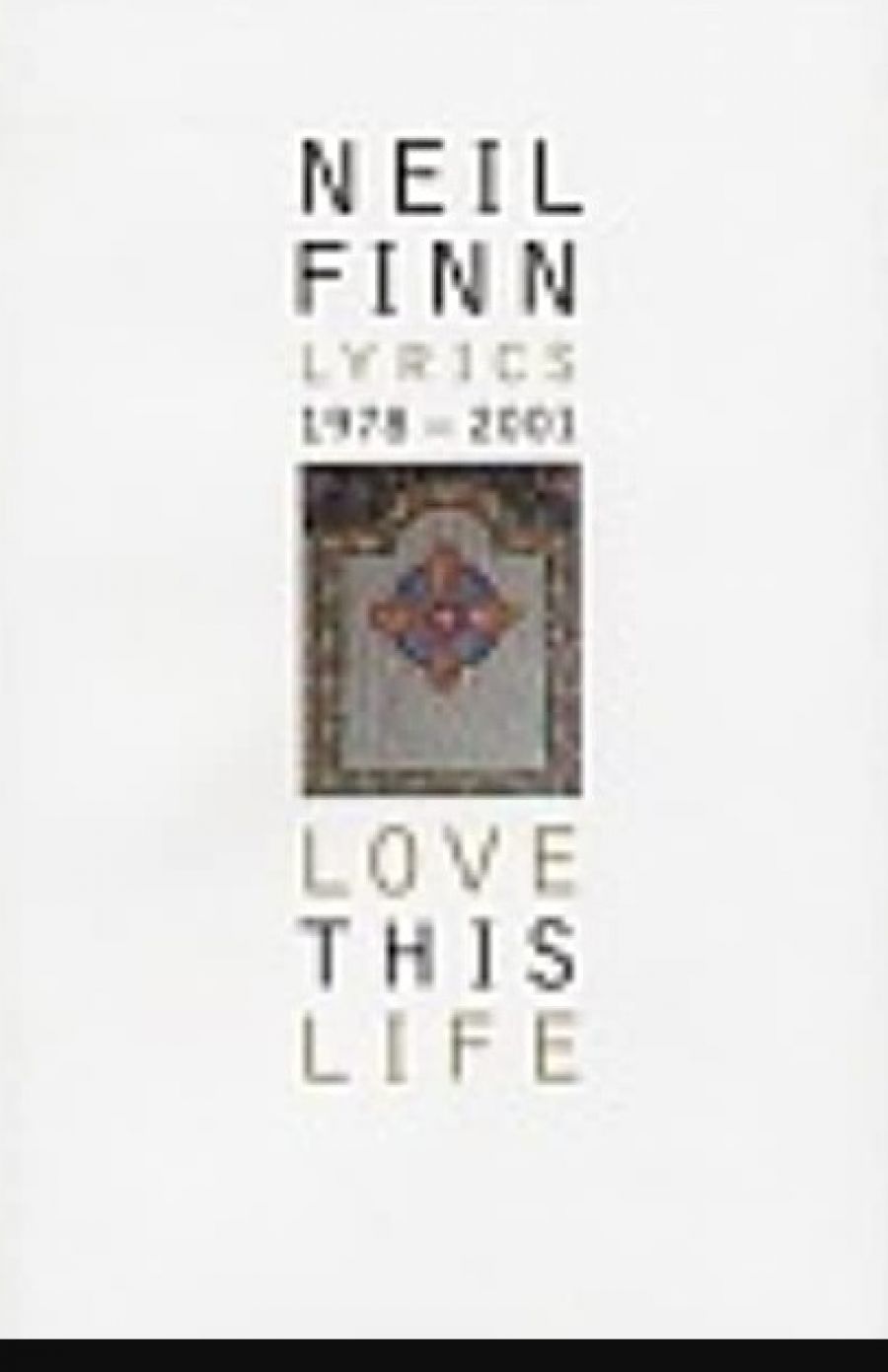
- Free Article: No
- Contents Category: Memoir
- Review Article: Yes
- Online Only: No
- Custom Highlight Text:
For some of us, it is hard to believe that Neil Finn is on the verge of middle age. Recruited in 1977 by his older brother Tim to replace Phil Judd in Split Enz, Neil first entered public consciousness as a teenager who apparently had never before played electric guitar. Within two years, he was the lead vocal on ‘I Got You’, the song that propelled Split Enz to the top of the charts not just in Australasia but in Britain, too. Significantly for a band that had relied on Tim as the songwriter, it was Neil’s song. In the twenty-one years since then, Neil has fashioned a reputation as a master of conventional popular songcraft, chiefly through the post-Split Enz trio, Crowded House, and, more recently, as a solo artist.
- Book 1 Title: Love this Life
- Book 1 Subtitle: Lyrics, 1978–2001
- Book 1 Biblio: Allen & Unwin, $27.95 hb, 223 pp
There has always been a sense of youthfulness and promise in Finn’s appearance and in his boyish vocal style. And yet, as a man and writer, Finn matured quickly. His devotion to his wife, Sharon, is evident throughout Love This Life, a collection of his song lyrics from 1978 to the present. These fall under the rubric ‘love songs’, but they are more than that. In my view, Finn’s best work – that is to say, the best songs, the ones that work lyrically and musically – is almost exclusively the material that tries to distil his desire for The Woman (one has to assume it’s Sharon) and the unyielding comfort she affords him. The songs include ‘Into Temptation’, ‘Fall at Your Feet’, ‘Don’t Dream It’s Over’, and ‘Whispers and Moans’.
Moody, image-heavy (stellar bodies, the depths of the ocean, and various types of darkness all feature) and personal to the point of being intensely private, these songs find Finn turning himself inside out as he tries to characterise his love. In ‘Whispers and Moans’, he expresses the wish that he could leave his own body so that he could witness himself and his lover in the throes of passion, presumably better to understand his own romantic condition. Finn confesses in an all-too-short preface that he does not expect his lyrics to stand up as poetry, which is fair enough given that they were composed in tandem with his melodies. Indeed, Finn’s method of composition, in which he noodles around on guitar while muttering phrases that occur to him until a song starts to take shape, ensures that the words will always read like lyrics, not poetry, with allusive references to such things as ‘Alan’s investments’ and lines cut short to fit the melodic structure.
Curiously, the decision has been taken to run Finn’s career in reverse in this book. Thus the songs from his latest album, One Nil, begin Love This Life and the reader must work progressively back to his earliest works. That’s a shame, not just because Finn’s latest material is not his best but because a good deal of it was written with former Prince collaborators Lisa Coleman and Wendy Melvoin and subsequently Finn’s distinctive sensibility seems dampened. More importantly, it makes it hard to get a sense of how Finn has developed as a writer, an opportunity missed.
In some respects, this collection sells Finn’s achievements as a songwriter short. Ten years ago, in a review of the Crowded House album Woodface published in The Age, I suggested that Finn was writing the sort of songs that Paul McCartney should have been composing. In a conversation with a mutual acquaintance, Finn scoffed with some venom at my assertion. But the truth is that Finn, despite his technical facility with the pop-song form, has still not succumbed, as McCartney did long ago, to structural short cuts and a jobber’s melodic tricks. You won’t get any sense of that from this book but, in this writer’s view, it is so.
All the same, Love This Life did prompt me to dig out Crowded House’s wonderful album Together Alone (1994) and Split Enz’s best work, True Colours (1980), and the songs have been rattling around in my head ever since. If the purpose of this book was to keep alive those ephemeral things, modern pop songs, then it has done its work.


Comments powered by CComment